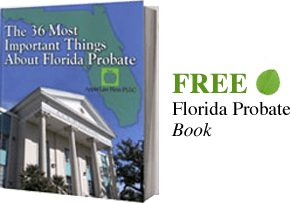Charitable Remainder Trust
A charitable remainder trust, or CRT, is a great estate-planning tool that lets a person donate assets to a favorite charity while also generating a stream of revenue during the trust term for the settlor or the beneficiary.
This type of trust is irrevocable, which means the donor must give up legal control of the assets. The charity, or a third party, will usually serve as the CRT’s trustee. A trustee will act as the manager of the trust’s assets and will invest the property to produce income. With a charitable remainder trust, the trust will pay out to a designated person every year a certain amount of revenue. This revenue will be a fixed amount each year or a fixed percentage of the trust’s value. A CRT can last for the individual’s life or for a period not to exceed 20 years. Once the trust ends, the trust’s assets and property are given to the charity.
Investing through a charitable remainder trust has some tax advantages. It can be an income tax deduction, spread over five years for the value of the gift the to the charity. What can be difficult is calculating the amount of the deduction. The value of the gift is not the value of the property, as the IRS deducts from the value the income a person is likely to receive from the property. For instance, if a person donates $500k, and expects to generate $100k of income, based on interest rates and life expectancy, the value of the gift is $400k.
Another huge benefit of a charitable remainder trust is that it can turn appreciated property, property that has increased in value, into cash without paying capital gains tax on the profit. A charity usually sells any non-income producing asset in a charitable trust and uses the proceeds to buy property that will produce income for the beneficiary or settlor. This is because a charity does not have to pay capital gains tax when it sells assets and the proceeds stay in the trust.
Receiving Income From the TrustMany choose to receive a fixed annuity in case the trust generates a lower than expected income. Once the fixed amount is set and the trust is operational, the settlor cannot change the amount. The amount of fixed income can theoretically be as high as the settlor wants, but there are some reasons not to make the payment too high. The higher the payments, the lower the income tax deduction will be. Additionally, higher payments could eat into the trust’s principal, which could leave no assets left for the charity once the trust deal ends. A charity would be unlikely to accept the gift if it likely the trust property will be paid back to the settlor with no chance of receiving a remainder.
Receiving a Percentage of the Trust AssetsSome settlors choose to take an annual payment through a set percentage of the value of the current worth of the trust’s assets. For example a trust could specify the person receives 6 percent of the assets yearly. Each year the trust’s assets will be reappraised and the 6 percent will be taken from that amount. This way of determining the yearly payout is smart if you are unsure of how inflation and other factors will affect the market and is a safer gamble. The IRS states a person must receive at least 5 percent of the value of the trust each year.
For more information on the benefits of a charitable remainder trust contact The Law Office of David Goldman PLLC today.
 Jacksonville Estate Planning Lawyers Law Office of David M. Goldman Home
Jacksonville Estate Planning Lawyers Law Office of David M. Goldman Home
















